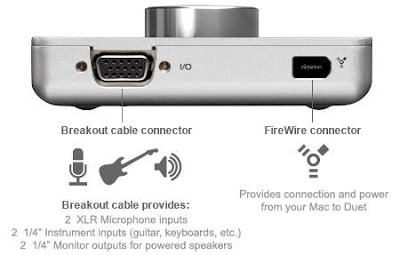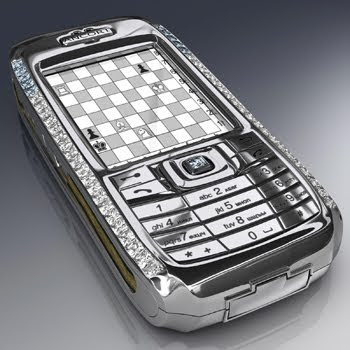In 1985, briefly after being discharged from Apple, Steve Jobs grounded NeXT, the slightly short-lived but revolutionary company centered higher education and business services. This absorbing PBS documentary film, named The Entrepreneurs was shot in 1986. It provides a rare glance of Jobs’ original sight with NeXT and Jobs' dreams.
Samsung's built some incredibly good mobiles recently, making its Galaxy range of smart phones a massive player in the tech world. But of the Samsung Galaxy S2, the Samsung Galaxy Nexus and the Samsung Galaxy Note, which Galaxy is deserving of your cash? Let's meet the mobiles that will be vying for our adoration.
Samsung Galaxy S2
The Samsung Galaxy S2 is an absolute beast, and when it came out earlier this year it proved itself to be the best Android phone in the universe. While other phones have grown bigger since, at the time we were blown away by the 4.3-inch Super AMOLED Plus display, and dazzled by its 1.2GHz dual-core processor. But that was months ago! Does the S2 still look so fresh today?
Samsung Galaxy Note
On the off-chance you didn't think the Galaxy S2 was big enough, the Note will certainly sort you out. The display on this monster mobile measures a mammoth 5.3 inches, and it's something of an animal on the inside too, with a 1.4GHz dual-core processor running the show.
Samsung Galaxy Nexus
The Samsung Galaxy Nexus has a 1.2GHz dual-core processor and a 5-megapixel camera, alongside a 4.65-inch display. That's fine, but what really sets this phone apart is that it's running Android 4.0, aka Ice Cream Sandwich, the newest version of Android. Does that make it worth picking up? Or will a meddlesome volume bug prevent it from finding glory?
Design
The Galaxy Nexus boasts a rounded display, adorned with black gloss and kept looking minimal by a lack of physical buttons. Instead you control the Nexus using three on-screen buttons. It's reasonably slim at 8.9mm thick and it's impressively light at 135g, but we're not blown away by the back plate, which is grey with a textured finished. The bulging spot where the camera pokes out is a little funny-looking too.
The Note is a tad classier, with a curved back and a camera that's flush to the casing. It's 9.7mm slim and 178g, which makes it portable on paper, but you'll likely struggle to fit the Note in your hands, let alone your pocket. There's a serious design no-no going on here too -- Samsung's hidden a cheeky stylus in the bottom of the Note, which is useful for jotting down notes or sketching bowls of fruit, but will almost certainly get lost.
The Samsung Galaxy S2 looks as good as it did when we first snatched it out of its box earlier in the year. It's under 9mm thin and weighs 115g, making it lighter than its Galaxy rivals. The 4.3-inch screen still makes a striking impression, and while some have complained that the case feels rather plasticky, we think the phone itself feels sturdy. It looks and feels fantastic -- we're throwing this one the S2's way.
Design winner: Samsung Galaxy S2
Hardware
The Galaxy S2 blew our tiny minds when it first arrived on the scene, thanks to a dual-core 1.2GHz processor that proved brilliant for apps, games and playing video. The screen was similarly amazing, liquifying our ocular bulbs with the brightness pumped out by its 4.3-inch Super Amoled Plus display.
Almost impossibly, Samsung also squeezed an 8-megapixel camera into the S2's slender chassis, making it an all-around hardware powerhouse.
For a month or so, anyway -- then other smart phones equalled the S2's hardware chops. The Galaxy Nexus goes further than the S2, with a 4.65-inch display that as well as being bigger, boasts a stonkingly high 1,280x720 pixel resolution.
Everything on this panel comes out looking crystal clear, so get ready to be impressed when you fire up a video or web page, and a 1.2GHz dual-core processor keeps everything running smoothly.
But the Galaxy Nexus has a slight hardware downside -- its camera has a meagre 5-megapixel resolution. We were impressed by the stills and video it managed to produce though, so it's not worth writing the Nexus off completely on that front. The Nexus has a 16GB capacity, and you can't expand that using a microSD card.
The Galaxy Note is an absolute hardware monster. Around the back you'll find an 8-megapixel camera, and underneath the bonnet hums an alarmingly potent 1.4GHz dual-core processor that outpaced the Galaxy S2 in our benchmark tests. Using the phone is like sailing through a sea of silk, with apps opening at lightning speed.
The display on offer here is absolutely ginormous at 5.4 inches. In fact, we wouldn't blame you at all if you dismissed the Galaxy Note for being simply too massive. The screen resolution is a touch higher than the Galaxy Nexus' at 1,280x800 pixels, but because the screen is so much bigger it has a lower dpi (dots per inch). It still looks crisp, clear and really colourful though.
Brimming with speedy components and with a screen big enough to eat your dinner off of, the Galaxy Note dominates when it comes to hardware.
Hardware winner: Samsung Galaxy Note
Software
While all three of these phones are running Android, one of them is different. For while the S2 and the Note are powered by version 2.3 of Google's mobile operating system (also known as Gingerbread), the Galaxy Nexus is more advanced, and arrives running Android 4.0, aka Ice Cream Sandwich.
That improved operating system brings visual refinements, and navigating through the phone is handled by three on-screen buttons, rather than any physical keys. Tapping one of those virtual buttons brings up a new multi-tasking menu, which stacks all the apps you've got running up the screen. Also new are folder refinements, and the ability to unlock your phone with your face.
The other major strength of the Galaxy Nexus is that it's running a vanilla version of Android, whereas the Note and S2 are both running a Samsung-tweaked edition of Android. The benefit of using a version that Samsung hasn't fiddled with is that when updates for Android arrive, you'll get them quicker because you don't have to wait for Samsung to squeeze its custom skin over that new version.
That's not to mention the fact that both the S2 and the Note come with loads of Samsung-installed bloatware apps you almost certainly won't want, and would rather delete as soon as possible.
But right now there's a serious problem with the Galaxy Nexus. A bug means that the phone spontaneously drops volume, meaning you miss speech during phone calls, and can miss texts or other notifications in the meantime.
We've been thoroughly testing the Nexus, and it seems that the bug rears its ugly head when you're connected over a 900MHz 2G connection. Networks in the UK that operate on that frequency include Vodafone and O2, as well as Tesco Mobile, giffgaff, Asda Mobile and BT Mobile.
For an analysis of the bug, read our tests. Google has told us a fix is incoming, so hopefully the issue will be resolved soon, at which point the Galaxy Nexus will definitely be winning in the software category. In the meantime though, we're going to call this one a draw between the Galaxy S2 and the Note.
Software winner: Samsung Galaxy S2 and Samsung Galaxy Note (draw)
Tiebreak
It's a tie! So we're going to have to decide between the Samsung Galaxy S2 and the Note.
We weren't impressed by the Note's battery life -- that massive screen appears to guzzle juice, and we got less than 12 hours of use from a full charge, even with moderate use. The S2, meanwhile, is decent when it comes to battery life. No smart phone is great when it comes to surviving away from the mains, but based on our tests the S2 should at least last you a full day's use.
The other issue is that the enormous dimensions won't suit everyone. Most people will probably prefer a smart phone that will fit easily into your pockets or handbag. Size isn't everything, y'know.
Overall winner: Samsung Galaxy S2



































